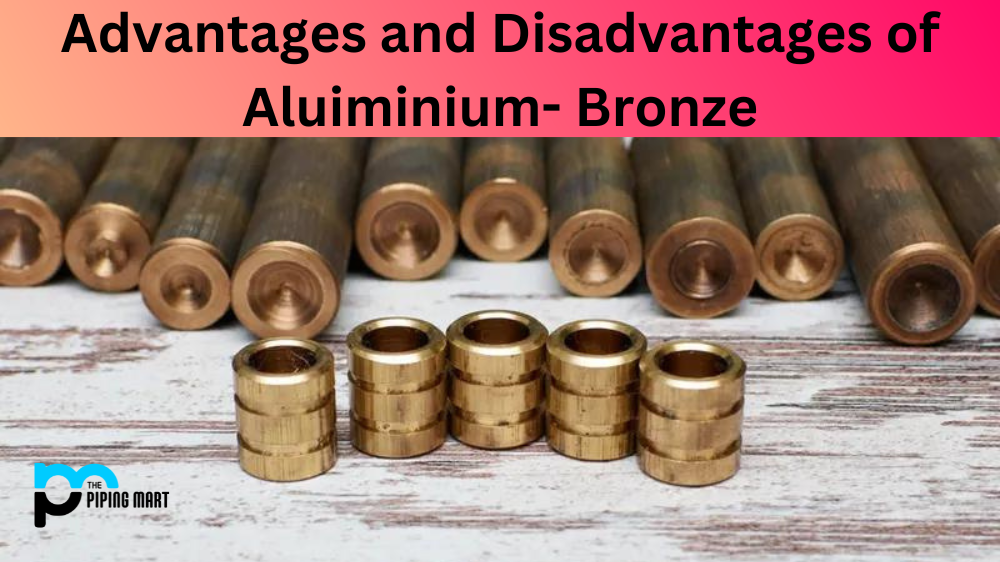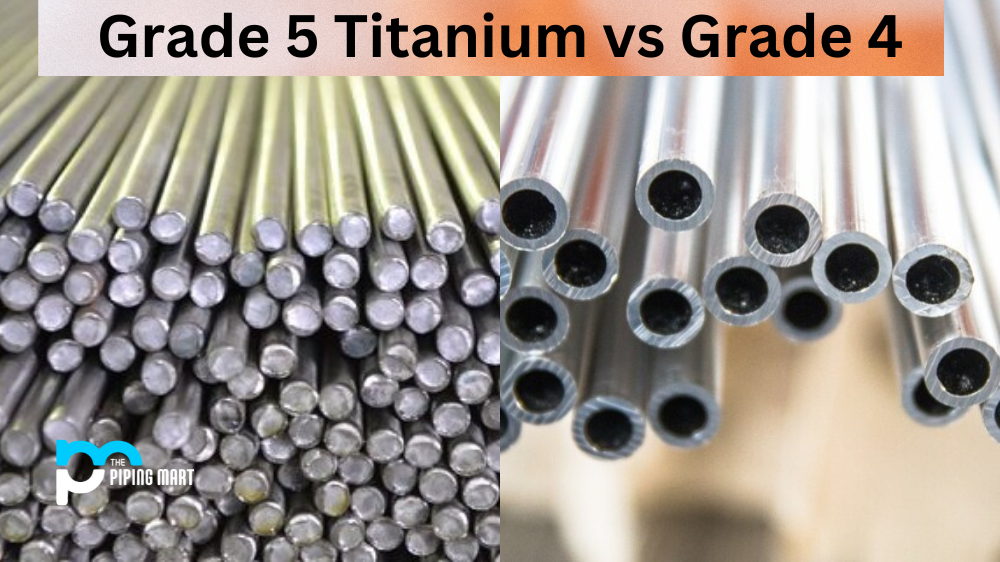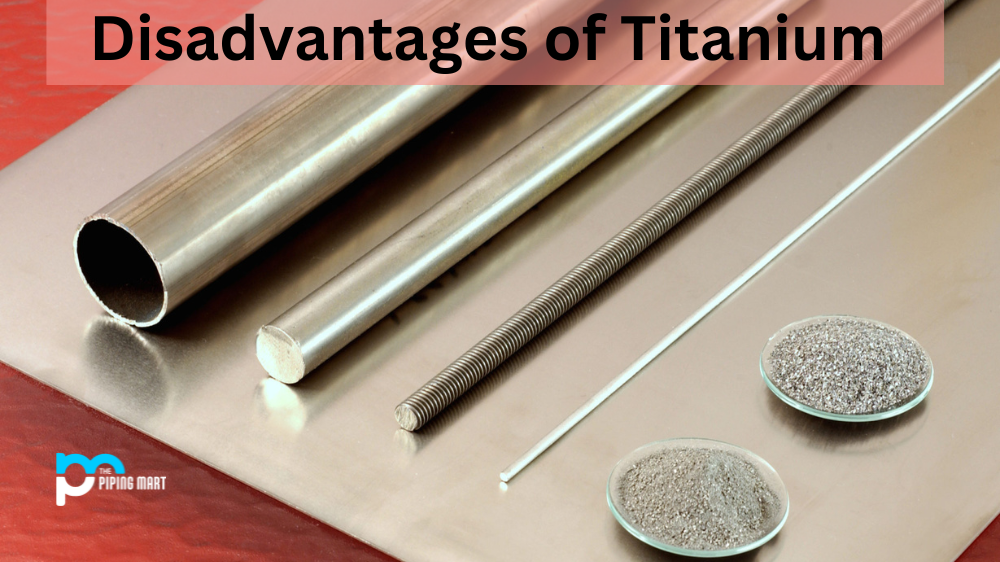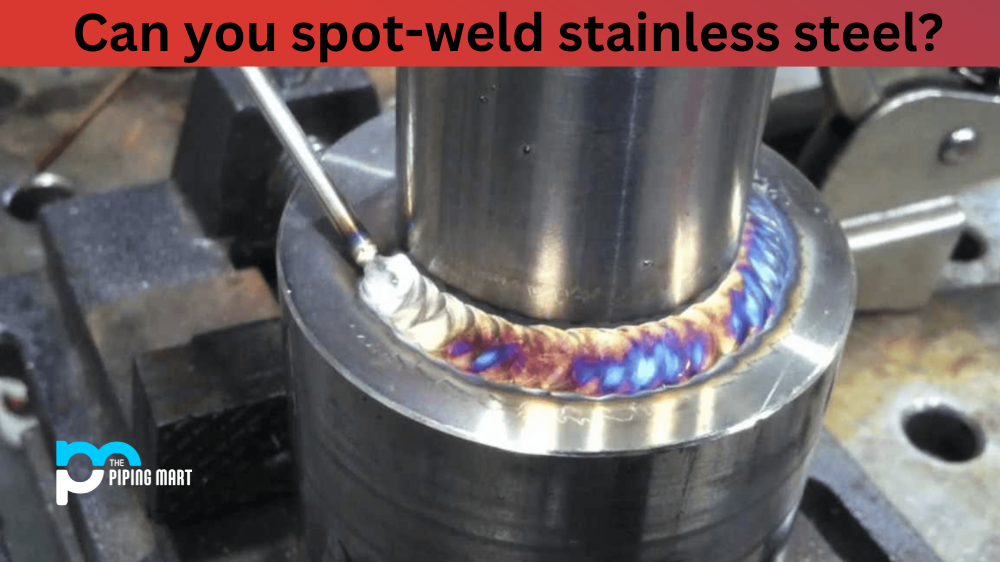Aluminum-bronze is an alloy composed of copper, aluminum, and other elements. It has a wide range of applications due to its high strength and corrosion resistance. In this blog post, we will explore the advantages and disadvantages of aluminum bronze so that you can make an informed decision when considering it for your project.
5 Advantages of Aluminum-Bronze
Aluminum bronze is known for its excellent wear resistance and strength. This makes it ideal for applications where parts need to be durable and reliable in harsh environments. The alloy also offers excellent corrosion resistance against saltwater and acidic materials, making it perfect for use in marine environments as well as industrial settings. Additionally, aluminum bronze is highly ductile, meaning that it can be machined into intricate shapes without compromising its strength or integrity.
Aluminum bronze also offers several advantages over pure aluminum alloys. It has higher tensile strength, higher fatigue strength, and better thermal conductivity than pure aluminum alloys. This means that parts made from aluminum bronze will last longer under heavy loads or in demanding conditions. Furthermore, the addition of aluminum to the alloy increases its electrical conductivity and reduces its price compared to other copper alloys.
- Aluminium-bronze is an alloy that contains both aluminium and bronze.
- Aluminium-bronze is strong and durable, making it ideal for a variety of applications.
- Aluminium-bronze is resistant to corrosion, making it ideal for use in harsh environments.
- Aluminium bronze has a high resistance to wear, making it ideal for uses where durability is important.
- Aluminium-bronze is non-magnetic, making it ideal for use in applications where magnetism is undesirable.
5 Disadvantages of Aluminum Bronze
There are some drawbacks to using aluminum bronze as well. For one thing, it is more expensive than pure copper alloys because of the addition of aluminum to the metal mixture. Additionally, since aluminum bronze contains copper as well as other metals such as zinc and tin, it might not be suitable for certain applications where only pure copper is acceptable (e.g., electrical wiring). Finally, machining aluminum bronze requires more power than machining pure copper alloys due to its higher hardness level.
- More expensive
- Aluminum-bronze is more expensive than other types of bronze, such as manganese bronze. This is because aluminum is a more expensive metal than manganese.
- Lower strength
- Aluminum bronze also has a lower strength than other types of bronze. This means that it is not as durable and may not be able to withstand as much wear and tear.
- Lower corrosion resistance
- Another disadvantage of aluminum-bronze is that it has a lower corrosion resistance than other types of bronze. This means that it is more likely to rust or corrode over time.
- Requires special care
- Aluminum-bronze also requires special care in order to maintain its appearance. For example, it should be cleaned with a mild soap and water solution and then dried with a soft cloth. It should also be stored in a cool, dry place.
- Limited availability
- Finally, aluminum bronze is also less widely available than other types of bronze. This means that it may be more difficult to find products made from this material.
Conclusion
In conclusion, there are many advantages and disadvantages associated with using aluminum bronze for your project needs. Its superior wear resistance makes it perfect for harsh environments like marine settings where corrosion resistance is key; however, its price tag may not make it the best choice for projects on a tight budget. Additionally, machining this alloy requires more power than machining pure copper alloys due to its higher hardness level—so keep that in mind when considering this material for your next project! Ultimately, whether or not you choose to use aluminum bronze depends on your specific needs and budget constraints—but keep these pros and cons in mind before making your decision!

Pipingmart is a B2B portal that specializes in metal, industrial and piping items. Additionally, we share the latest information and information about materials, products and various types of grades to assist businesses that are involved in this business.




